About six months into this trip I was having a video call with my sister just after I had posted the blog post about Romania. We got talking about the apartment Dylan and I had in Romania and I explained how it was located in a bit of a shit hole and the problems I was having in Bucharest in general. She asked why I hadn’t written about all those things in the blog post (in the spirit of full disclosure that I had promised in one of my early blog posts). I guess there are a few reasons why. When I talk about the annoying things out loud or I go to write them down, they all sound fairly petty. Or perhaps it was really just that I tried to avoid thinking about all the negative aspects of the experience because when my thoughts lingered on those things for too long it would inevitably send me down an anxious spiral, which would eventually result in a whole lot of self-loathing as I returned to the point above: it’s all rather petty in the scheme of this incredible experience we are having.
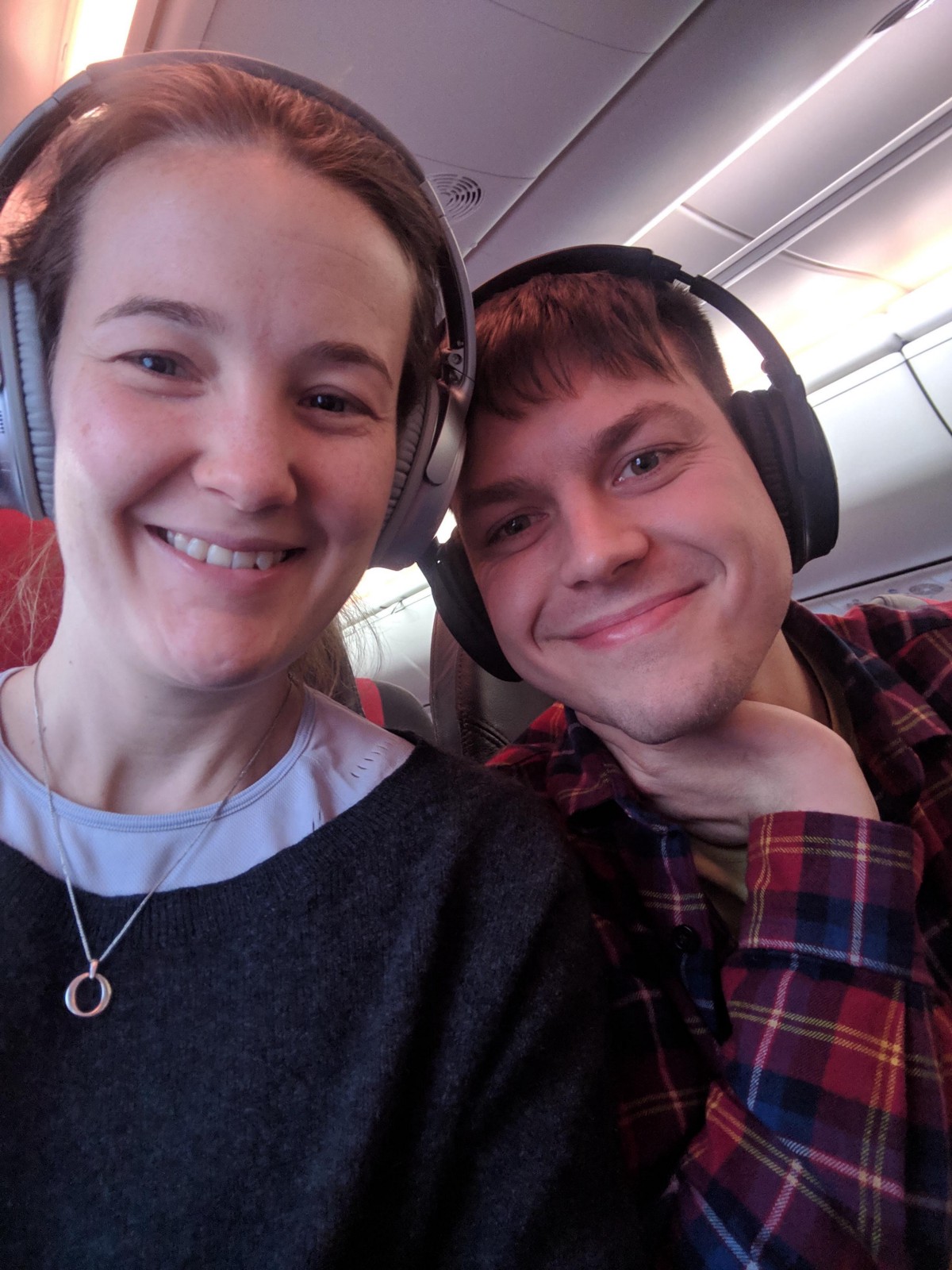
Aboard one of the many flights we took
BUT I did say I would be honest about this trip and that I’d make sure a manicured Instagram feed didn’t get in the way of the truth. So here it is.
The thing is, any good experience, any achievement, and any adventure requires some sort of sacrifice. And the sacrifice for being able to travel around the world for an entire year was putting up with bad showers, bad pillows, bins full of poo-covered toilet paper, and all of the annoying things about travel, like sitting around airports for hours, living out of a suitcase, and the constant checking in and checking out of accommodation. And of course - perhaps more than anything else - the loneliness. Missing people and life back home.
So in the spirit of honesty, I am dedicating this post to all the bad bits of our year as digital nomads.* But before you judge me too hard, please, it’s all a bit tongue-in-cheek.
I don’t know what it is about bathrooms for me, but a bad bathroom has a seriously disproportionate effect on my emotional wellbeing. In Valencia we couldn’t flush toilet paper so it had to go in a bin. This is pretty common in many parts of the world. After a few days you get use to it and it’s kind of ok, but after a month of living with that in my home, I was sick of it. I just wanted to flush the damn toilet paper out of sight. I also had a friend come to stay with us for one week while we were there. Dealing with that situation is bad enough with your husband, but I don’t want to have to set out loo rules for my guests. Thankfully though it was my friend Clare, who is the best possible kind of person to share such a situation with.
We also had a comically bad run on showers in our Airbnbs. Our first bathroom in the Malmö apartment was so tiny that you were practically showering over the toilet. In Valencia, in addition to the toilet situation, the drainage in the shower was so terrible that you’d be standing in a soapy mess, quickly washing your hair before the water flowed over the lip. It never quite drained fully so it was always damp and smelly. In Romania, it was a bath/shower combination, but because the shower head wasn’t attached to the wall and there was no glass or curtain around the bath, you’d be juggling the shower head while washing hair, meanwhile the bathroom is getting absolutely drenched because the water also spurts out from every angle of the shower head. Maybe not a big deal for a few days, but for 5 weeks, at some point I’m thinking I’d really like to have a dry bathroom floor and not nearly break my neck every time I get out of the bath/shower. In Edinburgh the shower simply stopped working so we were without for 3 days. These kind of things aren’t terrible, but some part of you knows that if you were in your own home you would just fix the problem. But you are not in your home and so you put up with it until it’s time to move on. Thankfully we arrived in Vienna to the perfect bathroom - the shower head was attached to the wall, there were glass walls, functioning drainage, heated flooring and delightful water pressure. The curse had ended.
We all know the importance of having a good night’s sleep. Apparently for most of us the sweet spot is 7–9 hours. For me, it’s definitely on the upper end of that, but I’m also an extremely fussy sleeper. I’ve never been that good at falling asleep, most nights taking hours to do so. My ideal sleep conditions are: 18°C, dark, a softish mattress, a sheet and doona covering me, a memory foam pillow at exactly the right height, and silence (except white noise from a fan is also ok). I’ve also been sleeping with an eye mask since 2011 (when I lived in Norway) and, whether psychologically or otherwise, I now can’t sleep well without it. Unsurprisingly, I regularly have trouble sleeping. Sleep on a plane (or any other thing that is not a bed) is almost impossible. Two 11 hour overnight flights London ex South Africa pushed my limits.
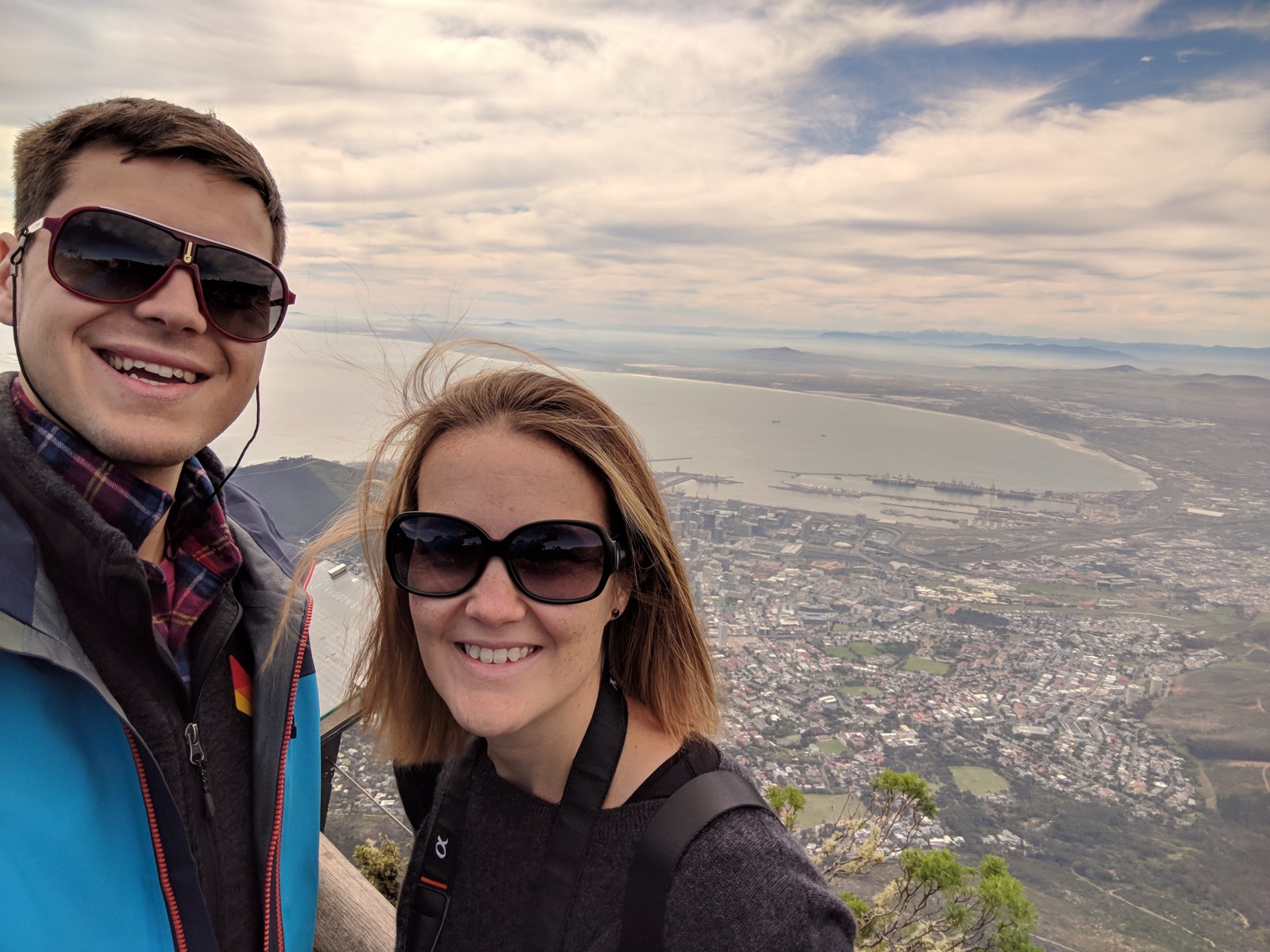
At the top of Cape Town (post sleep recovery)
The varying sleeping arrangements this past year presented innumerable challenges to a good night’s sleep. But the number one thing that seemed to persist from Airbnb to Airbnb was bad pillows. In particular, I don’t know what is wrong with European Airbnbs, but nearly every single one had these weird lumpy cushion-like things pretending to be pillows. It was infuriating. At its worst, for two months from November to January, it was an onslaught of flat lumpy cushions. And then I lost my eye mask somewhere between Stockholm and Vienna. I looked for a replacement for months and couldn’t find one. Disaster.
The flat pillow situation also seemed to induce snoring for Dylan - the absolute number one prevention to sleep. So when we were in Düsseldorf I bought a pair of Bose sleepbuds. They didn’t block out the snoring, but they came in handy in many other situations, especially in Cuba when the roosters were crowing every morning from 3am. Overall, $350 well spent.
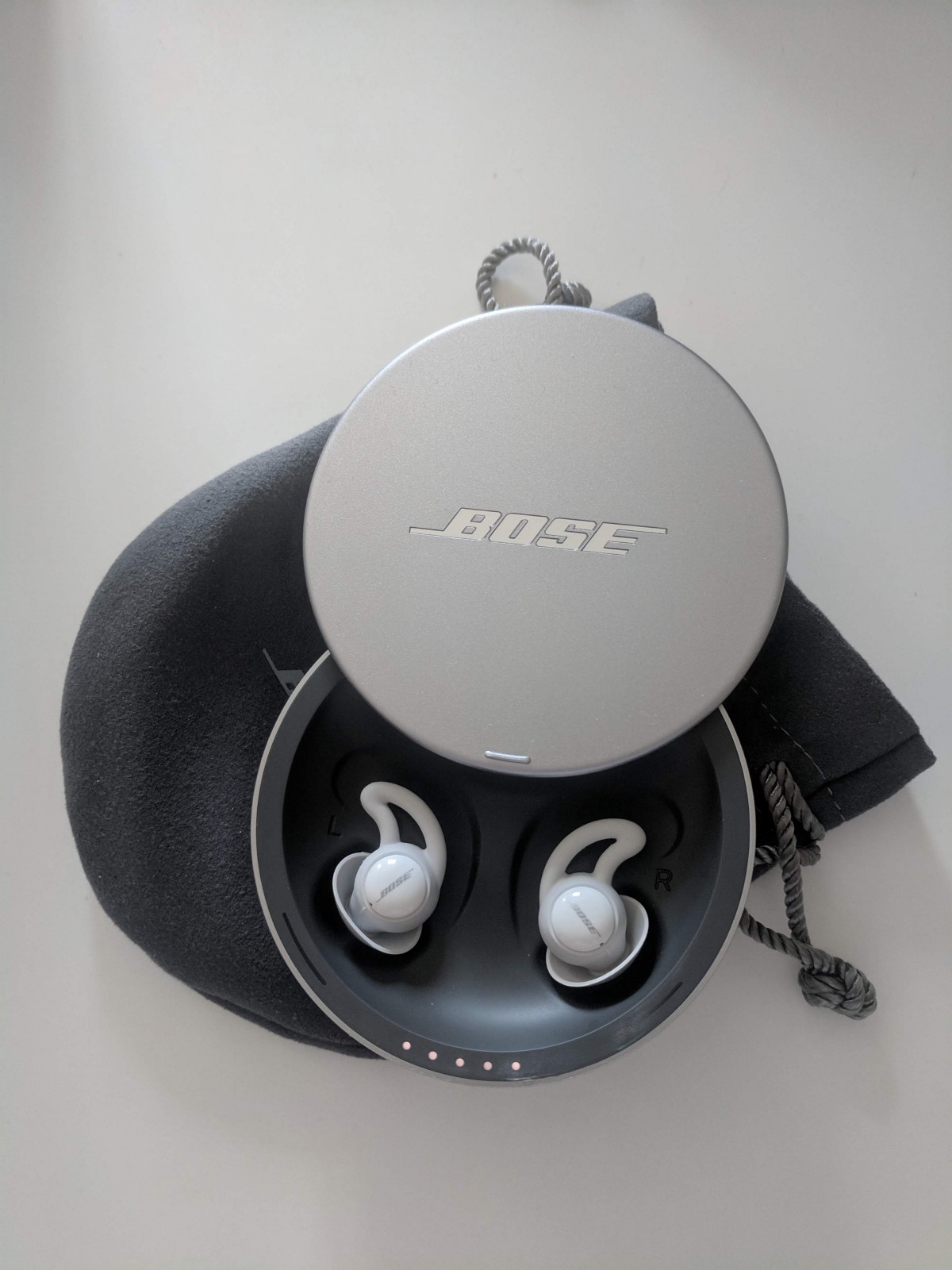
The Bose Sleepbuds
In my first blog post, I said one of the aims of this year was to “spontaneously travel and to spend quality time in different locations - the experience you get from living in a place rather than dropping in for a quick visit where you tick off the main tourist attractions.” But two months in and we were failing. We had Airbnbs booked and flights locked in for months in advance. We went to Amsterdam for two days and loved it but had to leave. We missed an opportunity to go road tripping with some people we met that day. Unfortunately, it took us nearly the entire year to find the right balance in this respect. Because we wanted to stay in places for a month, it necessarily required a certain degree of booking in advance. But if I’m being honest with myself, the real issue was probably that we were too afraid to not know what we were doing. We needed to be in control of our itinerary too much. Towards the very end of the year, we finally got the courage to leave our plans open, and the serendipity flowed. We wished we’d allowed ourselves this sort of freedom earlier.
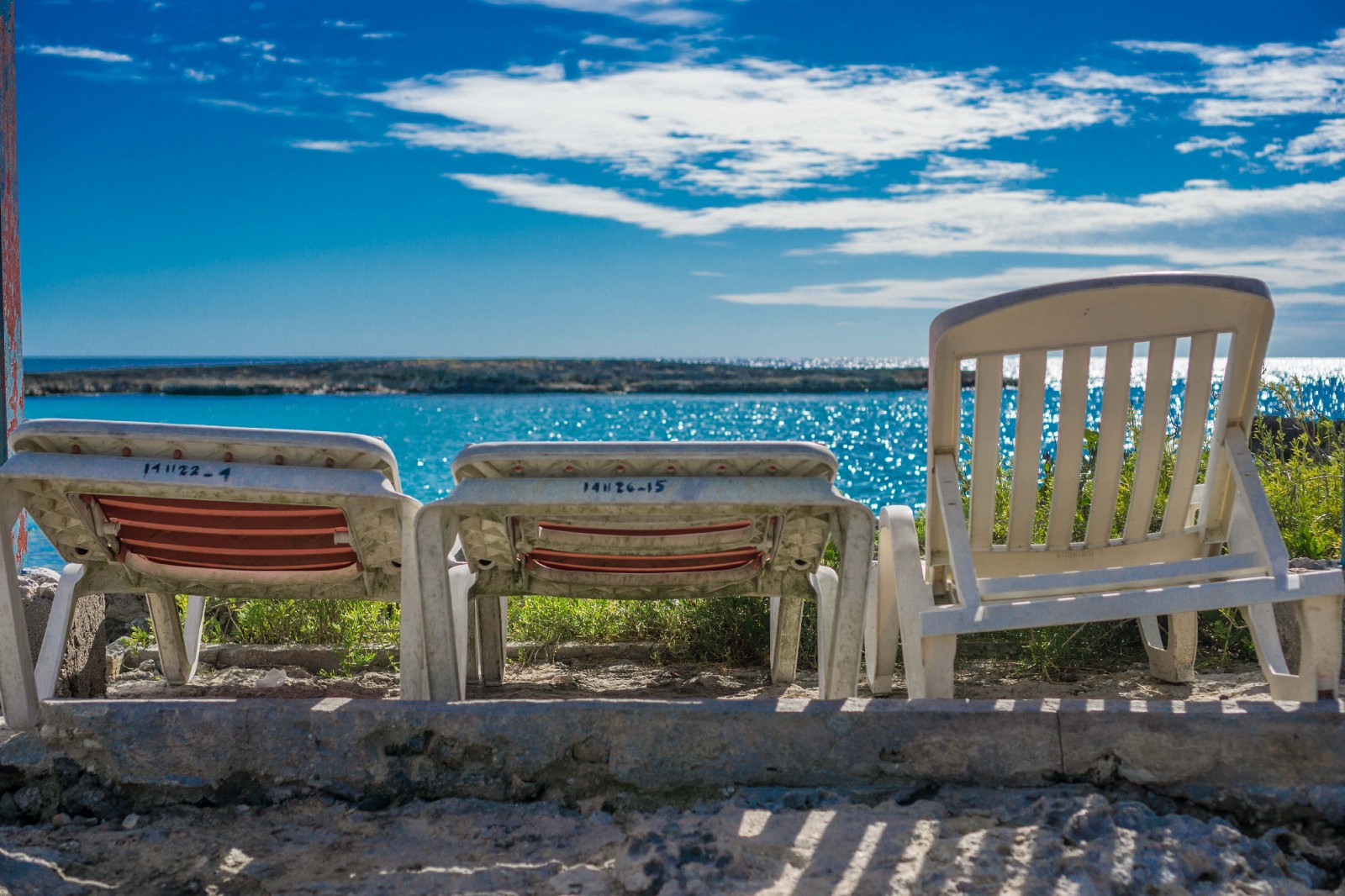
One of the other bad things about travelling is having high expectations of a great place or incredible experience that turns out to be decidedly mediocre. It is even worse if you’ve spent a bucketload lot of money on said experience. There is nothing worse than being super excited for this amazing trip you have idealised in your mind only to arrive and find it’s not what you were hoping for. The first time this happened for us was our week of “midnight skiing” in northern Sweden.
Admittedly going to the snow in May seems a little optimistic, but it’s at 68°N and is renowned for being able to do such a thing. But on day two we seriously contemplated leaving. The only reason we didn’t was because we couldn’t get a train out of there. We had no snow (in fact, it was raining), our hotel room was next to the nightclub, the food was insanely priced and the internet was so bad we couldn’t even watch Netflix (because when all else fails…) In hindsight we were glad we stuck the week out, but this isn’t a post about silver linings so none of that. But as the year went on, we were in a constant struggle when trying to decide whether we’d spend money on things that seemed amazing for fear that they would turn out to be crap. So we lowered our expectations to try and avoid disappointment. Actually, no, it was more than that. We reflected on the kind of travellers we want to be.
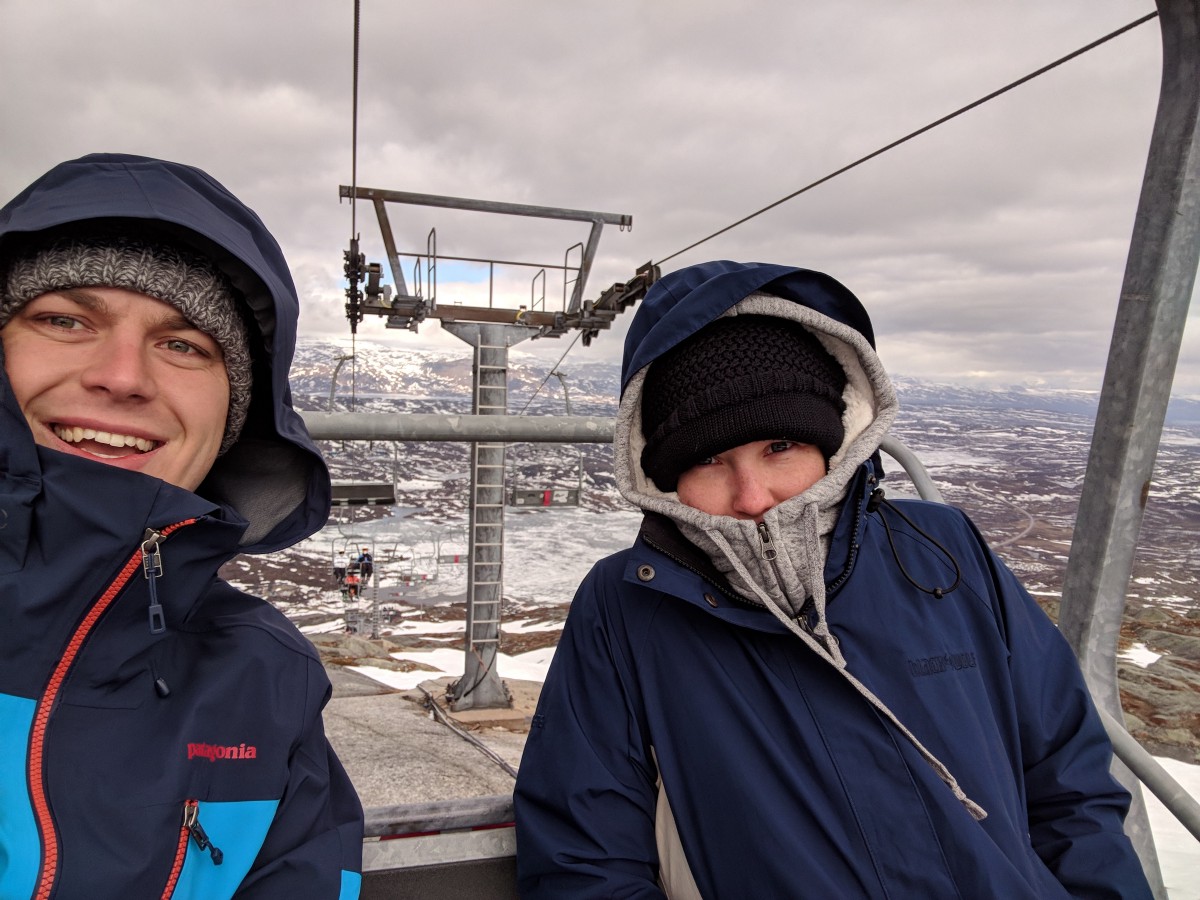
Riding the ski lift in Riksgransen (money not well spent)
We made a deliberate decision to appreciate the little things and be grateful for the overall experience we were having. We decided that we didn’t want to become entitled travellers who feel hard done by when an experience turns out differently to expectations. We didn’t want to fall in the habit of always expecting great service in a restaurant, the perfect tour guide, the most comfortable accommodation, the easy travel itinerary, and not being able to cope with boredom and mediocrity. But being positive like that, all the time, especially when you are spending your life’s savings on such a grand adventure, is hard. So, on that note, back to the whinging.
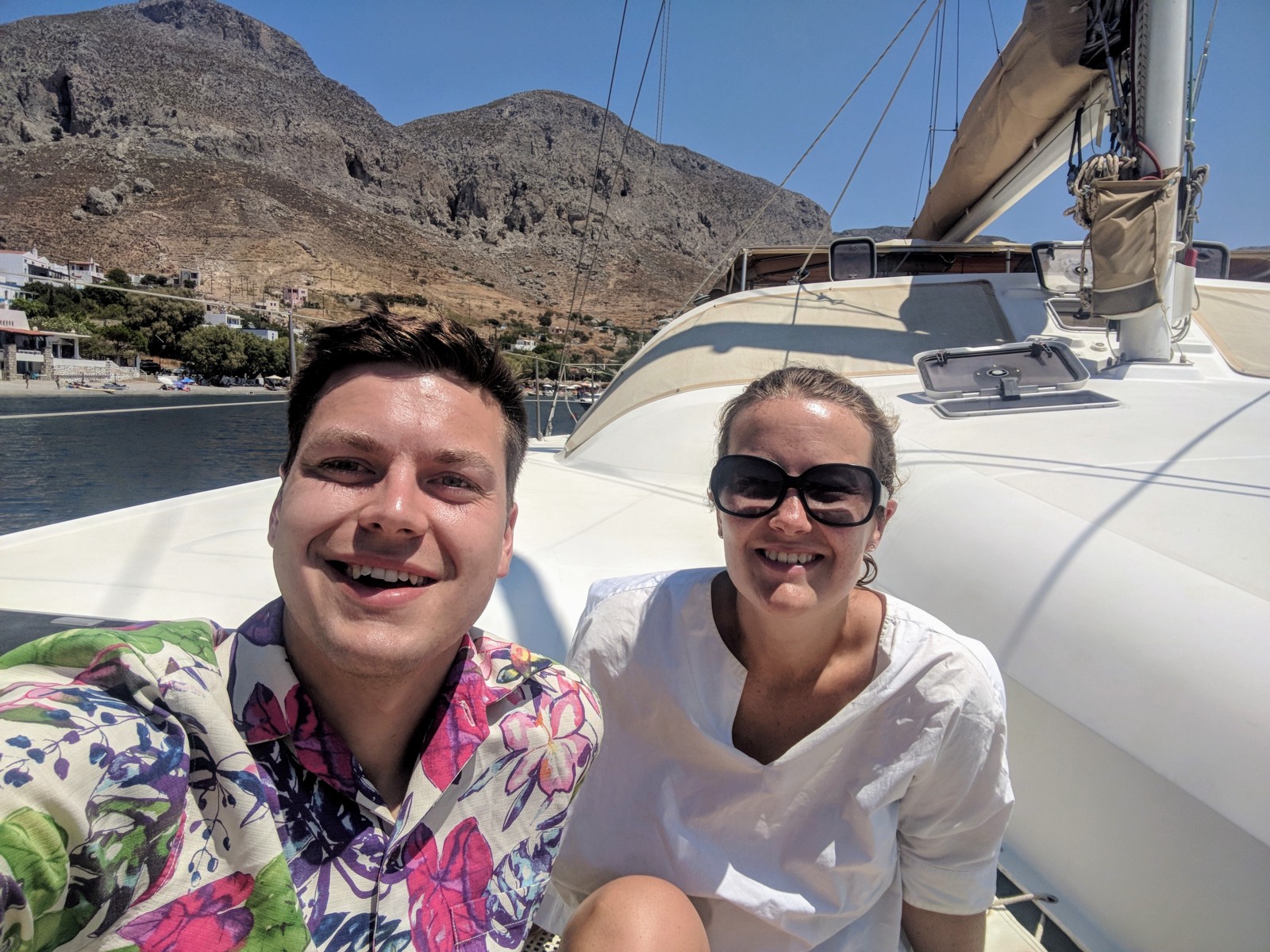
Enjoying our sailing around the Dodecanese Islands (money well spent)
The things that are interesting, fun or an exciting challenge on a short trip, eventually become tediously repetitive and tiresome on a long one. The big one for us was the “set up process” required when we arrived at each new location. Every time we arrived in our new home we had to set up our life again. This invariably involved: unpacking our suitcase, finding a grocery store to stock the kitchen and bathroom, working out the internet and laundry situation, finding a gym with a casual membership, finding a yoga studio, working out the local transport system, finding a co-working space or setting up a workspace in the apartment, working out the local currency, finding a barber, and then sometimes a real curve ball was thrown and we’d need to find a doctor or a dentist.
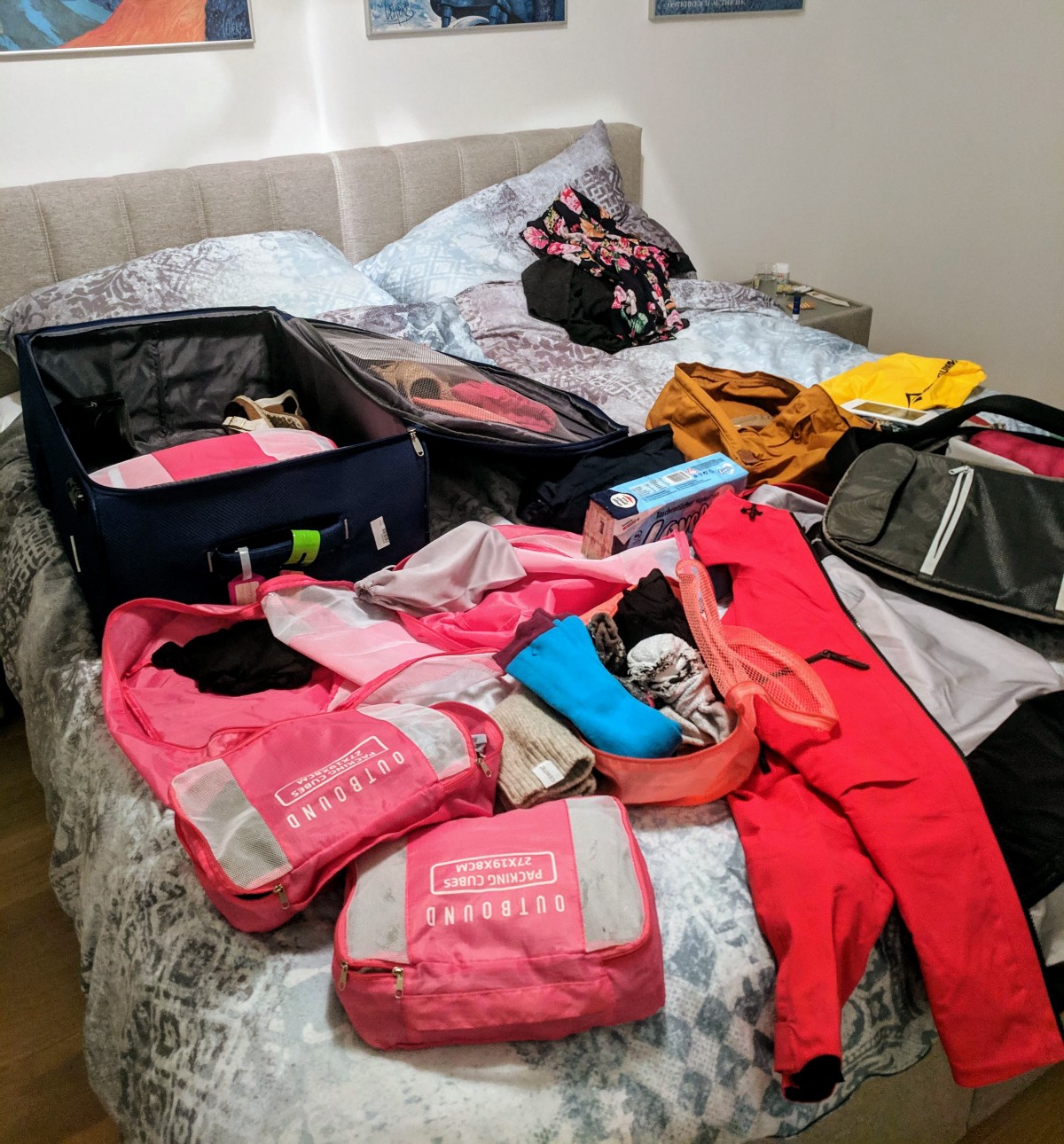
Packing up once again
I enjoy cooking and learning new recipes and so I was really looking forward to expanding my repertoire over the course of the year with the additional free time I would have. But the kitchens in each Airbnb were not exactly well equipped. Some were better than others, but in Valencia, we didn’t even have an oven. In Romania, I had to go out and buy a chopping board, grater and knife. Generally, they were all stocked with the basics, which is enough to get by. But I love a good kitchen and there were very few that made me happy.
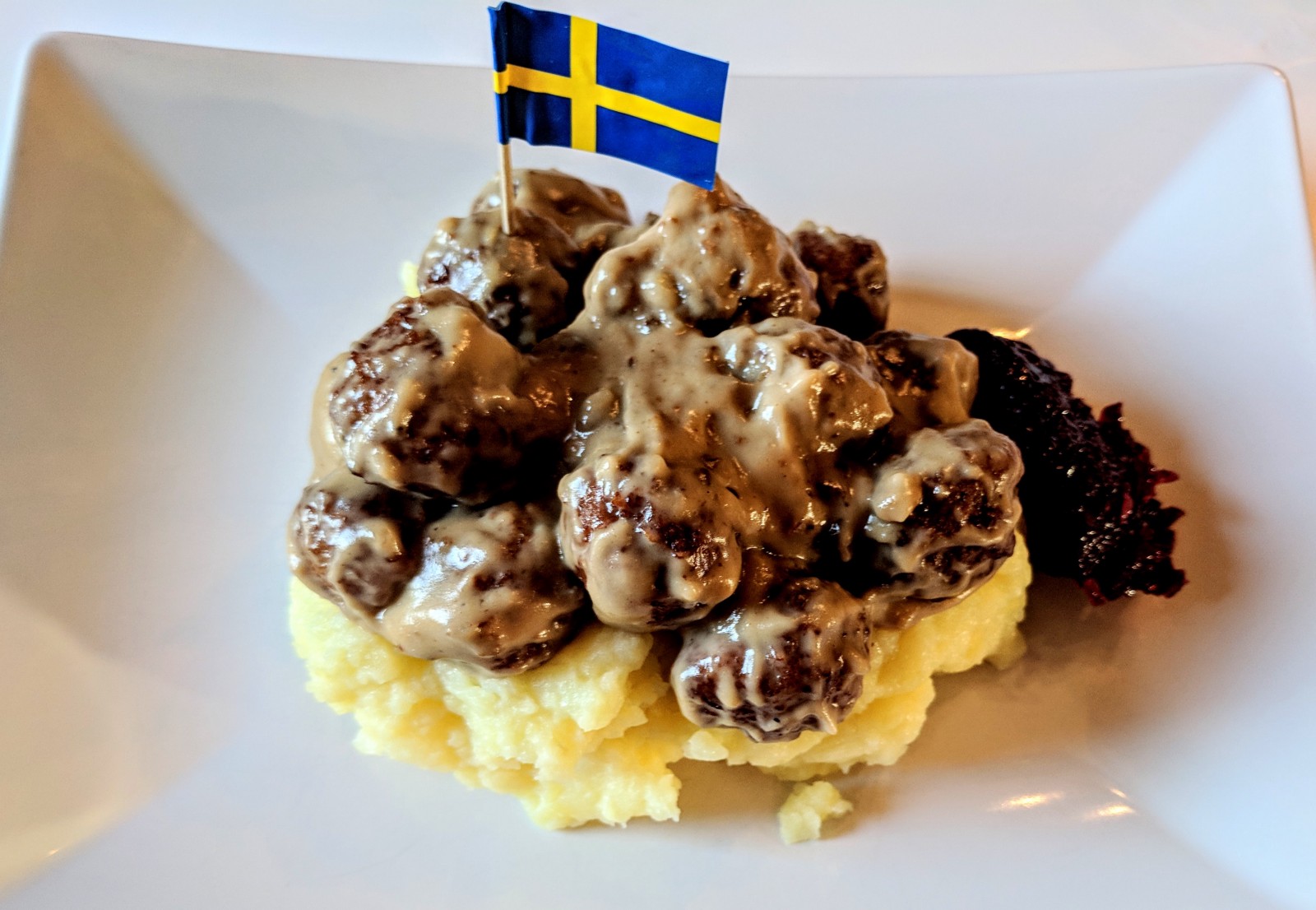
I learnt to make traditional Swedish meatballs in Sweden
Essentially, moving from place to place required a repetition of homemaking chores. Imagine all those tasks you have to do when you move into a new place - and then imagine repeating those same tasks every month. It’s exhausting. And very often, a lot of conversations and navigations had to be done in a country where English was not the local language.
At first, it’s interesting and fun to learn a few new words and phrases in another language. Then, after a few weeks and the addition of a few more languages, it becomes a bit more challenging. But after months and months of constantly changing languages, it becomes frustrating, awkward and exhausting. Don’t get me wrong, I actually love language and have always enjoyed learning foreign languages. I am entirely aware that it’s on me to learn the local language, and if not, to suffer the consequences. I don’t expect people to speak English to make my travel experience easier. But far out, Europe has so many languages and there is no way to learn them all. The EU has 24 official working languages, and many, many more are spoken across the continent. Indeed, even within individual countries there are multiple languages spoken. There are 4 official languages in Spain and Switzerland. So we tried to learn the basics for arrival (hello, thank you, goodbye) and otherwise smile politely and say ‘Sorry, do you speak English?’. To which they invariably respond in English, and we’d feel bad that we’d gotten away with it, again. As native English speakers we are unbelievably fortunate when it comes to travelling.
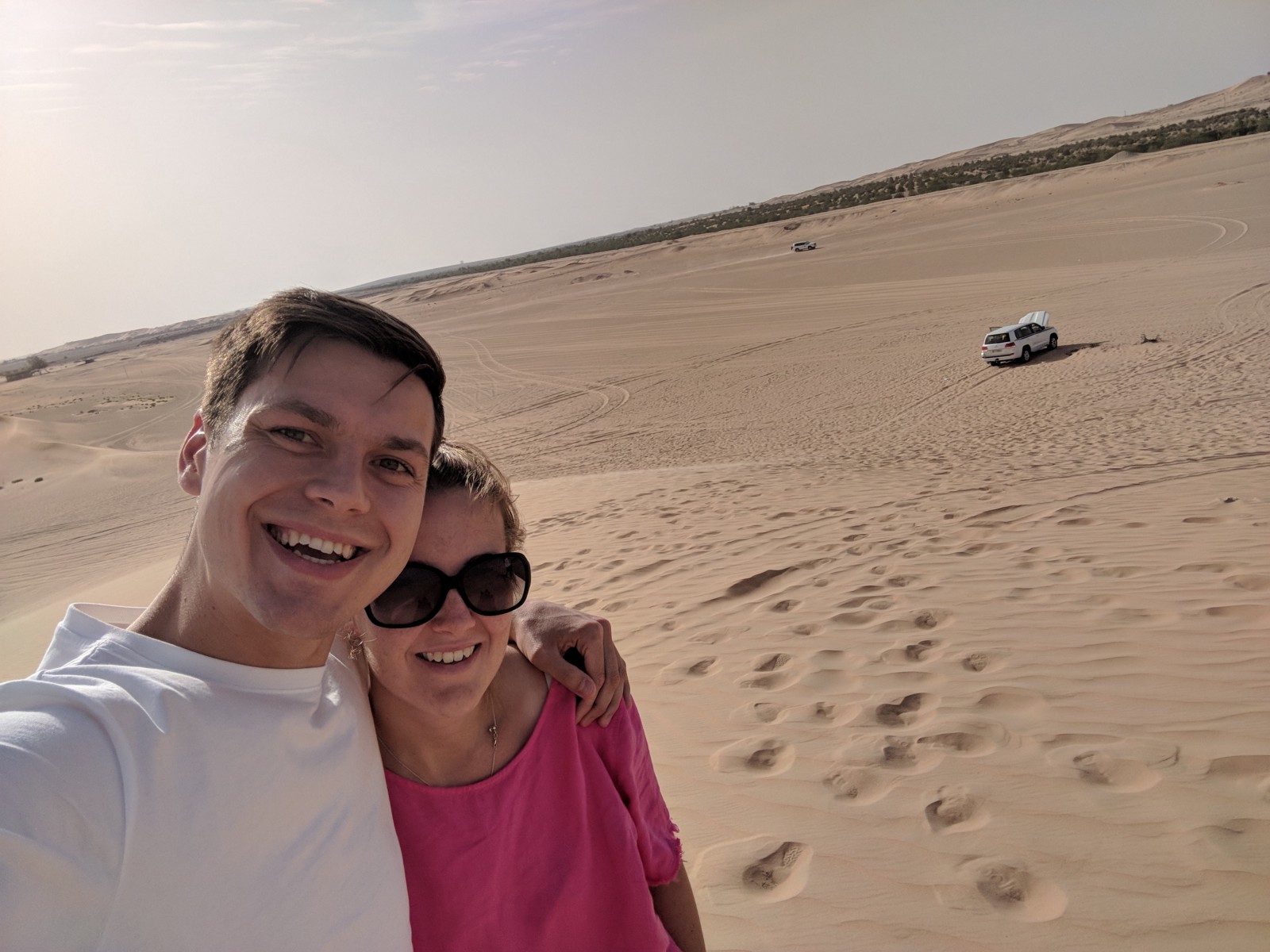
On desert safari in UAE
So much of the world now speaks English and you can go to so many countries and get by with English. I’ve got nothing on the multilingual Swiss or those folk from the Netherlands and Scandinavia who speak English with native level proficiency, but I’d also like to think I’m not an obnoxious tourist who assumes everyone speaks English, or expects them to. So when in a country with a foreign language, the first minute or so of every interaction is defined by awkward moments establishing that I don’t speak the language (after they assume I do because I’ve said hello or something equally as simple in the local language), to then implicitly agreeing we’ll speak English, and then feeling bad that I can so easily get by with my native language. Even in Sweden where English is ubiquitous it still gave me angst to assume someone spoke English (even though they all did, and very well). But it was more than just the awkwardness and angst. Where there was a language barrier, we felt that we actually missed out on a certain experience of interacting in a genuine way with locals. For that reason, after months in non-English speaking countries, it was a relief to arrive in the UK and again later in the US.
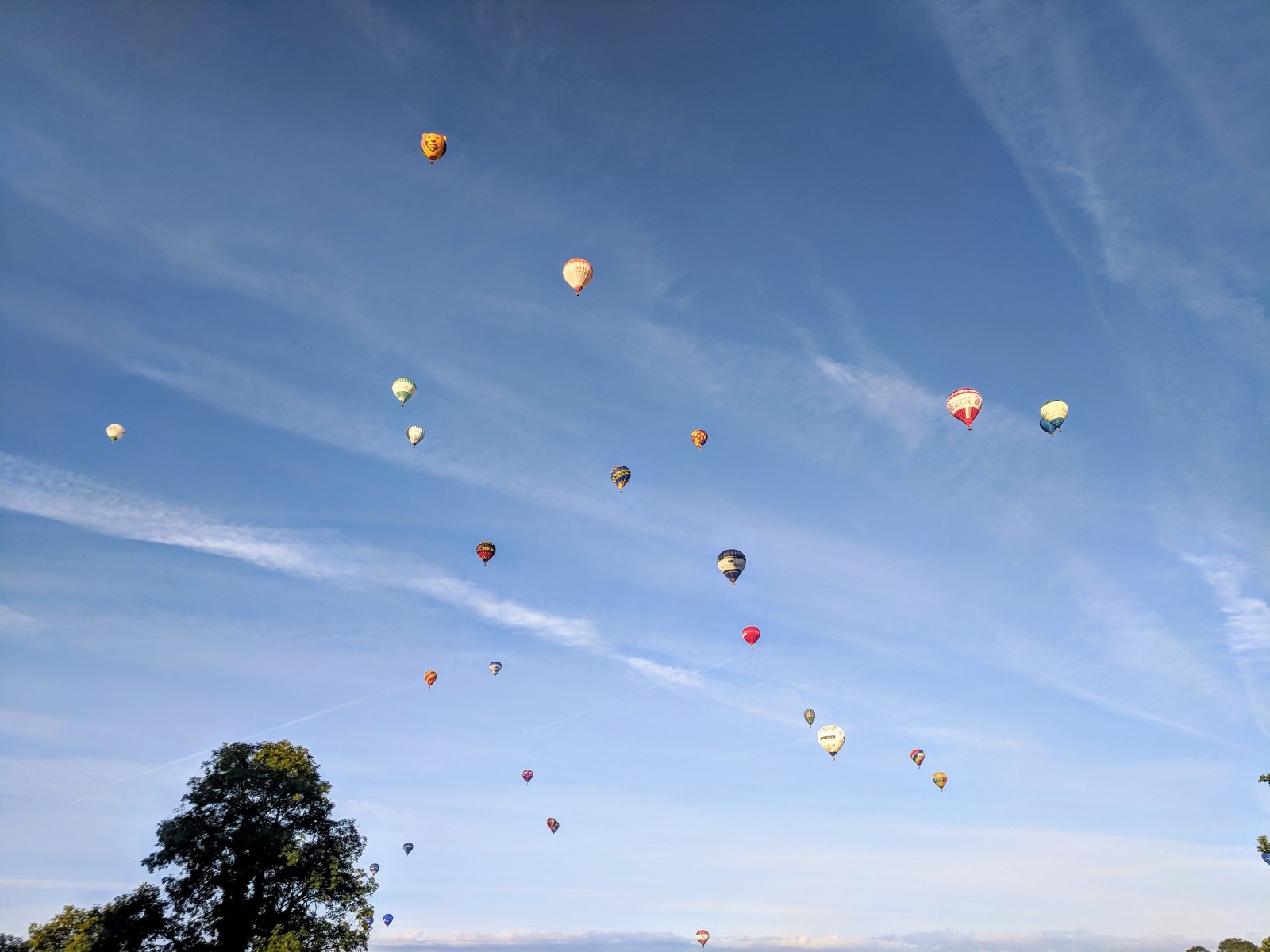
All that being said, there was almost no English spoken in Cuba so I had a solid two weeks to practice Spanish. And I loved it. But I am really glad I didn’t get sick there. Despite the generally good English speaking ability across Europe, even the best ESL speakers struggle when it comes to the nuances of medical diagnosis. I got quite ill when we were in Valencia. Being ill is inconvenient at the best of times, but being ill in a foreign country brings a whole new level of inconvenience.
Even once we found a doctor that was advertised as speaking English, it quickly became apparent that conversational Spanish doesn’t get you far when trying to discuss diaphragm spasms, abdominal cramping, indigestion and nausea. I got sick again when we were in Lisbon, although I didn’t seek out medical help until we got to Vienna. I was hoping the symptoms would resolve themselves, but I was still sick after 4 days and it was getting worse, so once we arrived in Vienna I went to the doctor. We navigated the discussion of nuanced symptoms relatively well, but at the Diagnostic Centre there was significant confusion about what exactly they were meant to be looking for in the ultrasound. Appendicitis? And of course, after all those Euros spent as an “international patient”, there’s the inconvenience of submitting all the paperwork to claim the money back from travel insurance. That’s adulthood right there.
Of course, being on the other side of the world inevitably means missing out on what’s happening back home. Missing life’s celebrations is hard. We missed special birthdays, engagement parties and weddings. We also missed the hard times - job losses, challenging medical diagnoses and funerals. Having the people you care about going through a tough time and not being able to physically be there to help, or just to hold, is upsetting. We hated not being there when life was throwing shit at the people we care most about. But actually, we also missed everyday life, and sometimes that was just as hard as the big things.
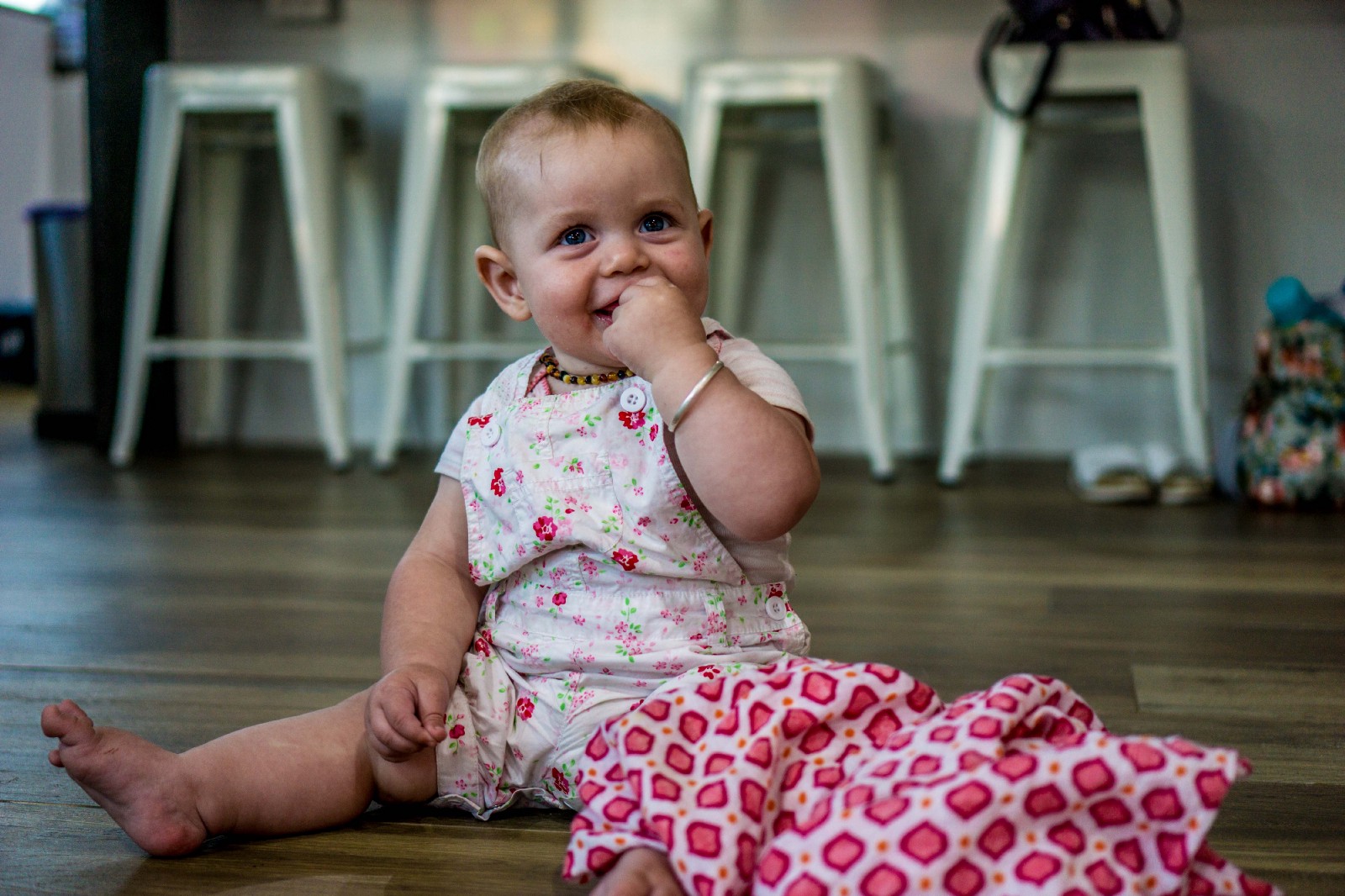
My niece Josie turned one while we were away
Almost as much as I missed family and friends, I missed working. That was a shock. I love my job and I enjoy working, but I didn’t think that not having it would have the impact that it did. It surprised me how much I missed working - having a purpose, solving problems, having people rely on me, achieving something, being connected. Even just having a reason to get out of bed in the morning. I struggled to evoke the motivation to tackle other pursuits. And I used language barriers as an excuse for not doing things that I wanted to do. At the beginning of the trip I was feeling excited that I would have the time to pursue other interests - I wanted to cook more, to develop a consistent yoga practice, to read loads of books, improve my photography and write for pleasure.
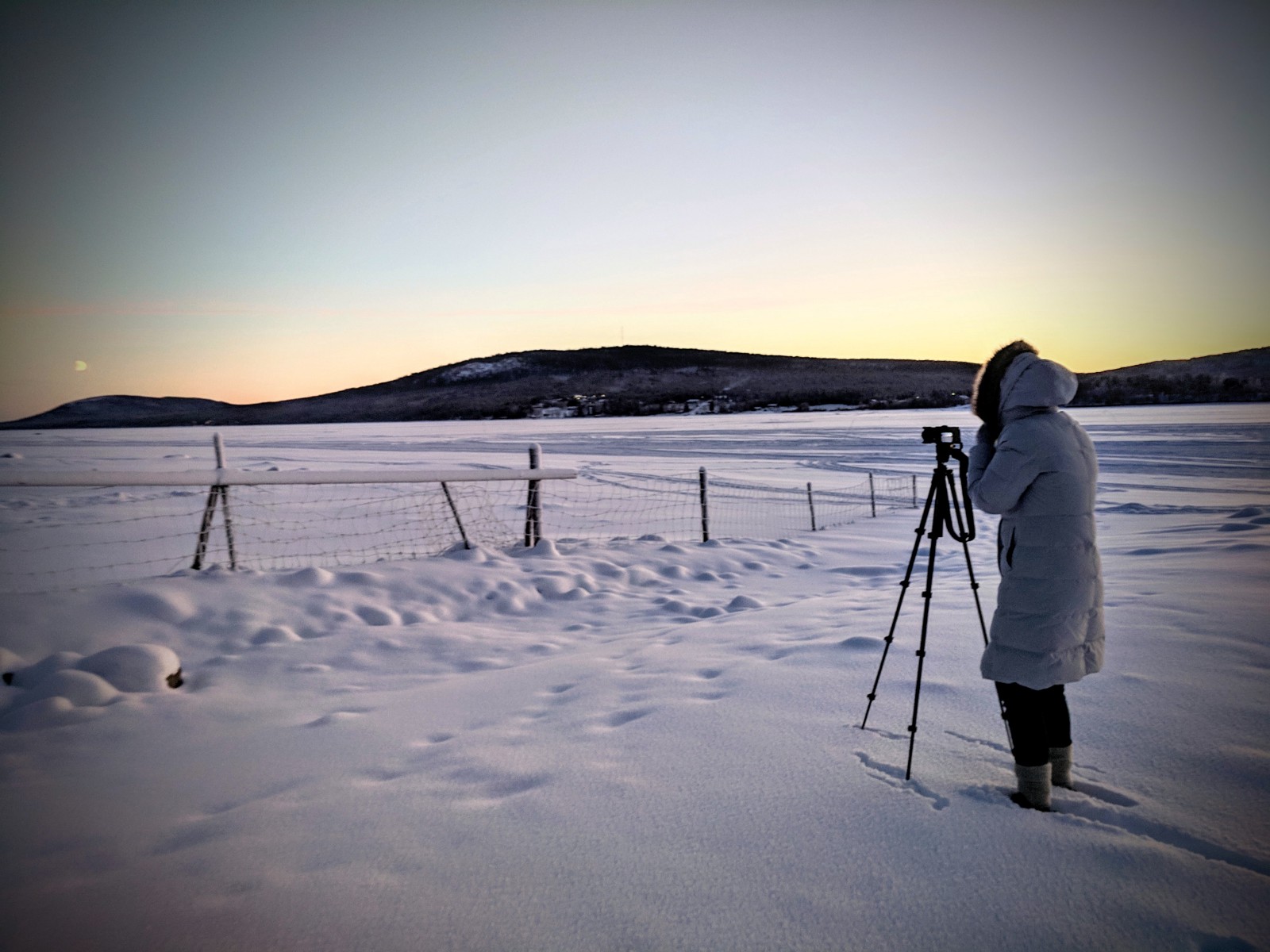
Practising snow photography in Sweden
But without time pressure, I procrastinated and made excuses about why those things were no longer worthy goals, even though I finally had the time to do them and had always wanted to do more of them. Oh the irony. As the year went on I grew increasingly envious of the challenges and achievements Dylan was having with his work. Even though he had his own challenges adapting to a fully remote work life, I was so envious that he had contact with the real world and tangible tasks to achieve. I felt lonely and isolated from the real world. I had my University Masters work to keep me intellectually stimulated (and of course tangible assignments to get done), but that’s only a small part of what work gives me. Maybe it sounds weird to miss working so much, but (rightly or wrongly, rationally or irrationally) being a lawyer feels like a substantial part of my identity, and I was lost without it. Over time I worked through my motivational issues by creating daily routines, to do lists, and digging deep to find the real reasons for my procrastination. I constantly challenged my state of mind and got Dylan to call me out when I was making irrational excuses.
I wrote these blog posts more for myself than for anyone reading them. If no one read them, I still would have written them. I needed to. But it was motivating to know that at least a few people were regularly reading them. The task of capturing the experiences we were having during this year away in written form became my purpose.

Writing one of the early blog posts on Singapore
Starting each blog post was always harder than actually writing it. Once I started writing, it just flowed. But often the inspiration to start writing came from the excitement of an experience. But sadly, travel excitement was waning.
One of the negative aspects of long-term travel is the onset of “travel fatigue”. Fairly quickly we started to lose that sense of excitement that comes with anticipating or reminiscing about a trip. The necessary tasks to prepare for a trip became a tedious chore and the anticipatory holiday excitement gave way to a mundane expectation. This led to guilty feelings for being overindulged. We really wanted to get excited about each trip and each new destination, but as the year went on, it got harder and harder to arouse such sentiment. It started taking much bigger and more amazing things to feel any sense of wonder. About 8 months in we seriously questioned our ability to genuinely enjoy travel anymore. It’s not a coincidence that we went and stayed in a hotel made of ice around this time - it was the single most expensive night of accomodation in the entire year.
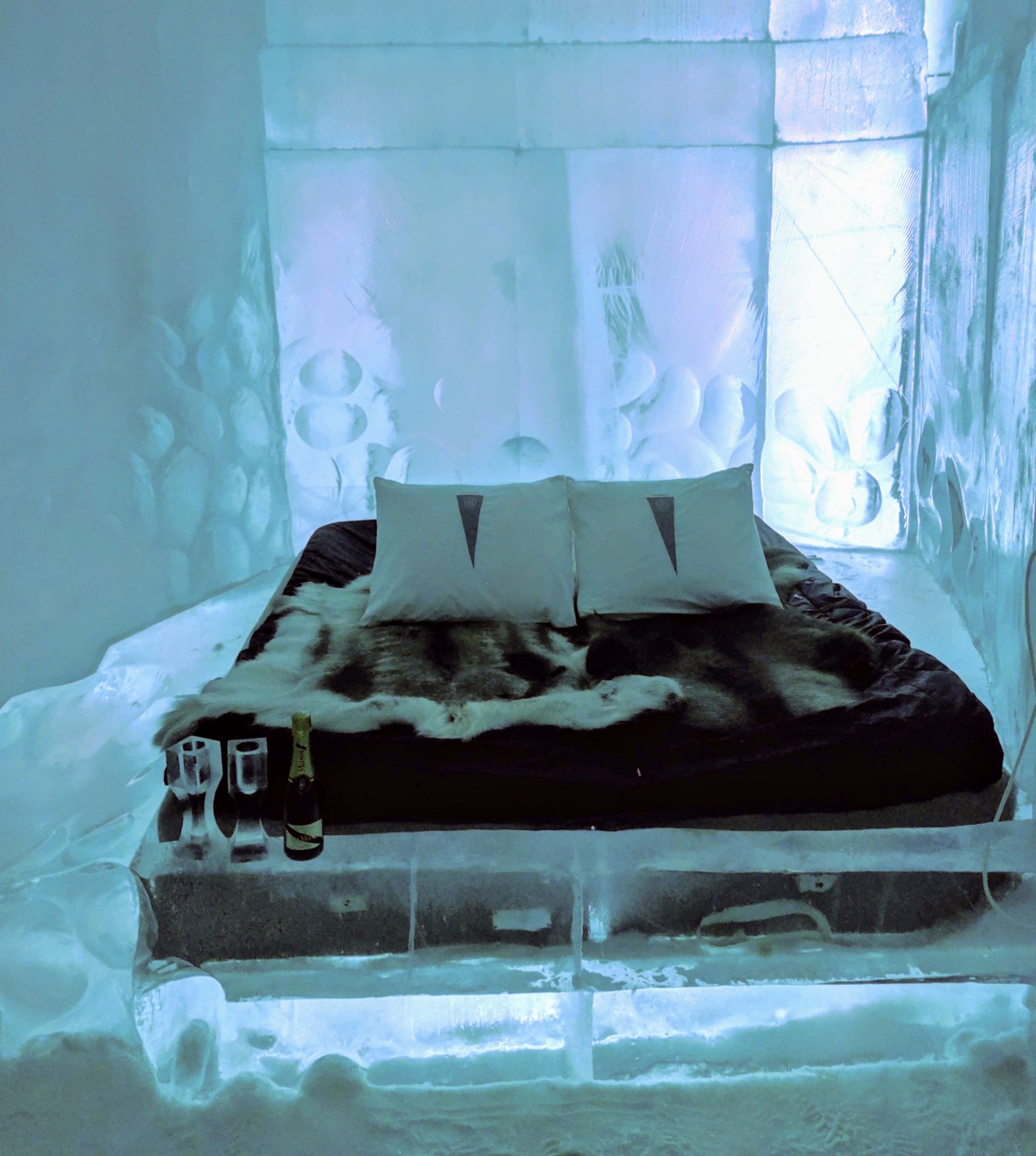
Our room in the Ice Hotel
But we realised that there was one thing that continued to be exciting no matter where in the world we were going - meeting up with old friends. We always felt excited when we were going to a place to see people we knew. Some of our best memories of the last year are from Paris, Bristol, Lisbon and NYC with Caitlin and Sam, from Switzerland with Max and Tash, from Mexico with Lauren and Sophie and my time in Cuba with Dad and Sue.
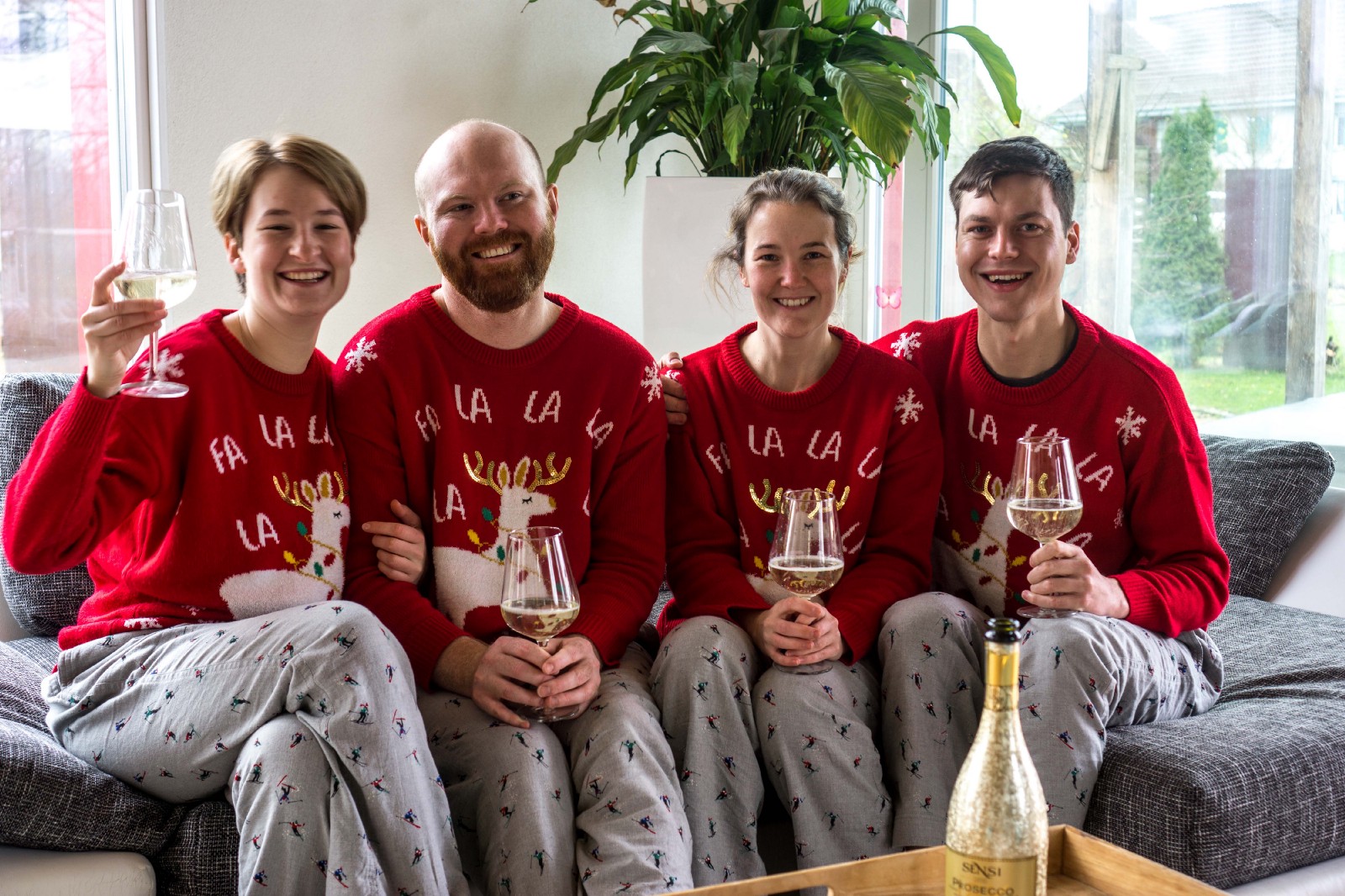
Christmas Day in Switzerland with Max and Tash
Of course, meeting new people while travelling is fun. We met lots of Dylan’s colleagues along the way and also random people through Airbnb Experiences and tech meet-ups, and all that was fun and added something special to our year. But I think we all desperately need deep connections to truly find meaning in what we are doing in our lives. A night out at the pub or at a dinner party with acquaintances is great, but it’s not a substitute for deep connection. The conversations I have with people that I’ve shared more than a decade of my life with are what I live for. With them, conversation is meaningful, laughter comes easily and life is unequivocally better.
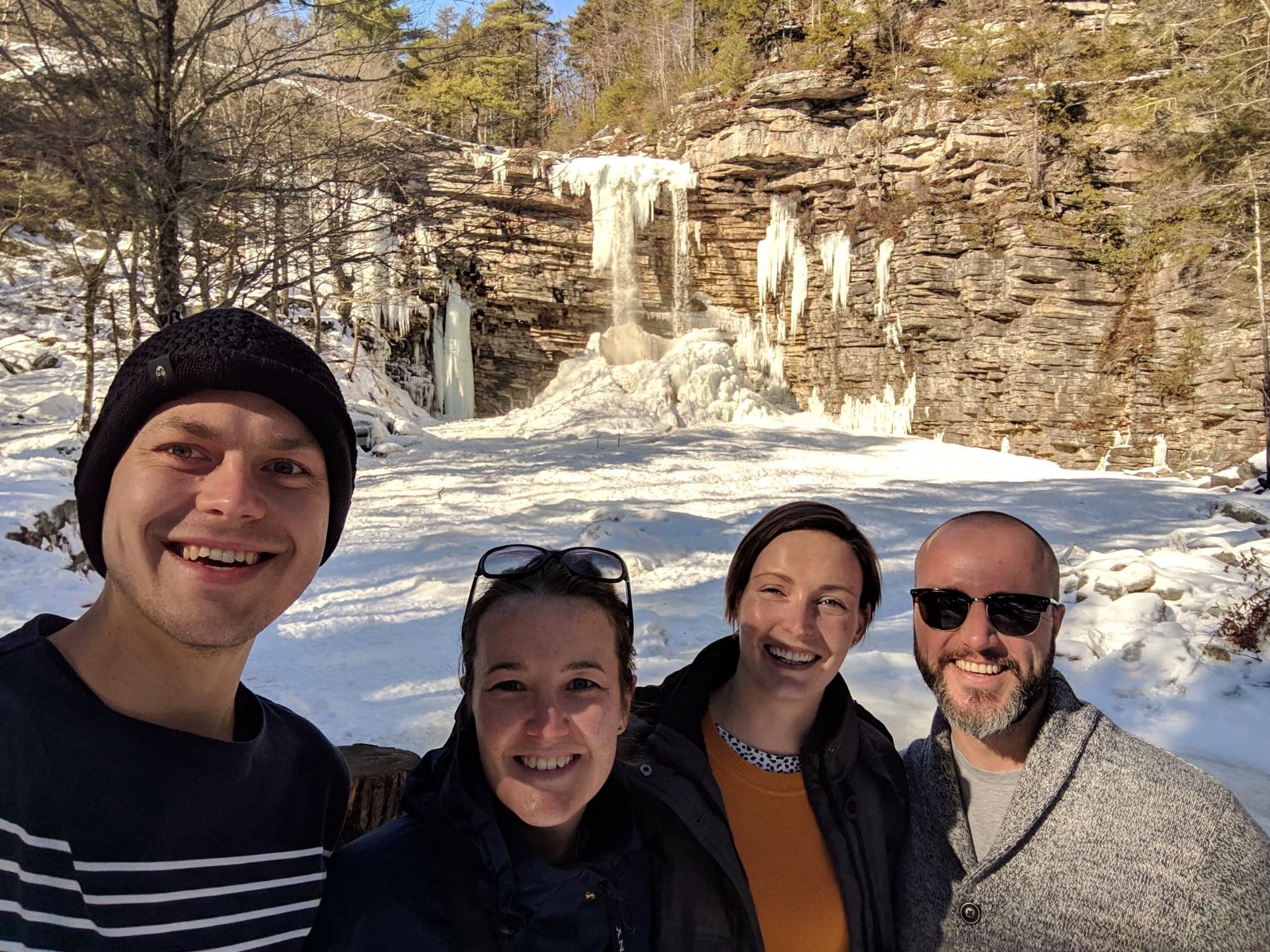
In New York for my 30th with Caitlin and Sam
For this reason, more than any other perhaps, I am looking forward to going home. I am also really looking forward to working again, but having deep connection with my people is what I am really craving. I learnt that I could never travel the world like we did this past year on a long-term basis. The world is full of wonder, and I never want to stop exploring it, but I can’t enjoy it enough without my people firmly in my life.
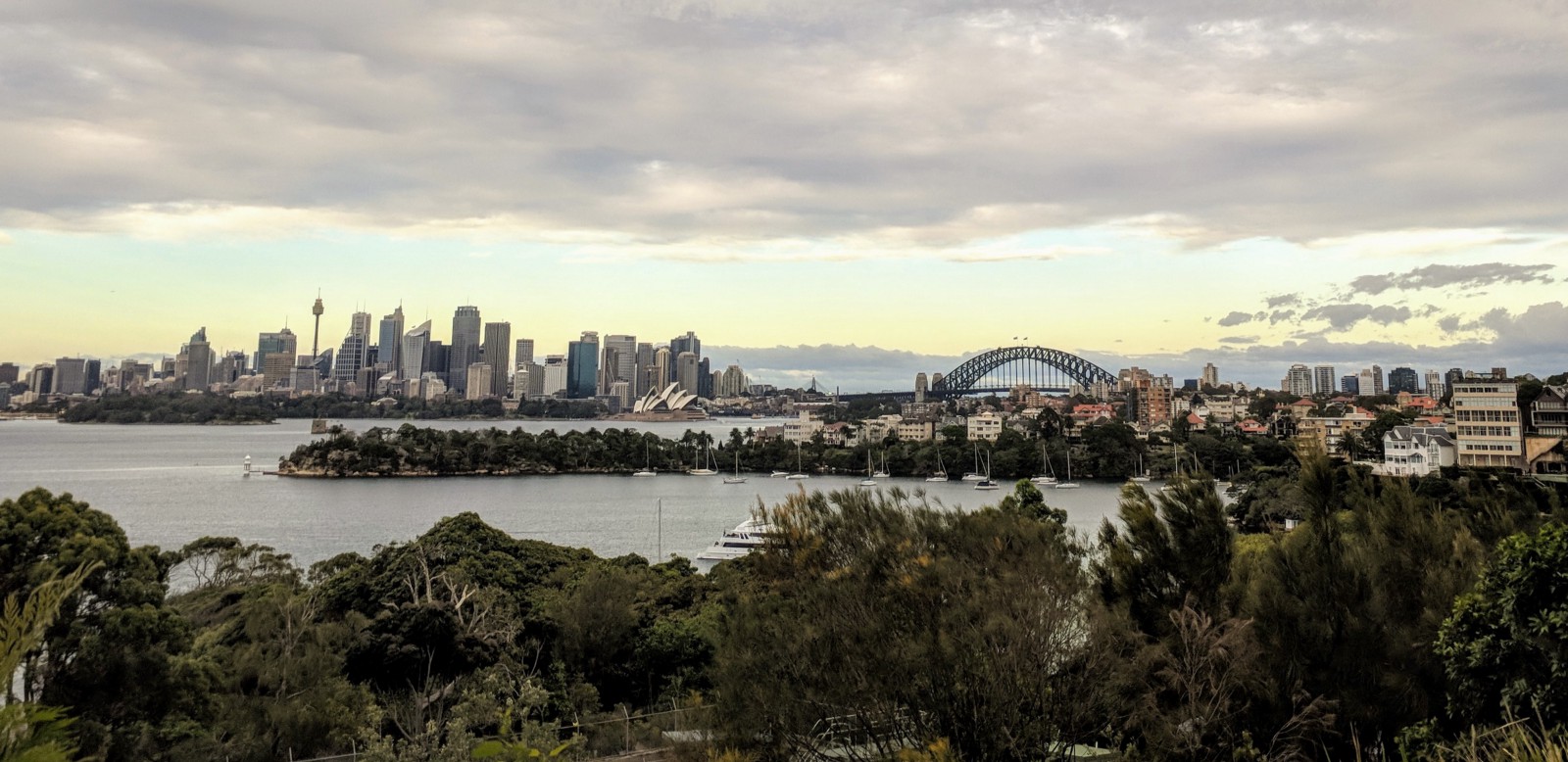
*It should be pointed out that nothing serious went wrong in our travels. There was no lost luggage, no missed flights, no hospital admissions, no animal attacks, nothing stolen, nothing broken and nothing lost - except the eye mask. (In case you’re wondering, Dylan bought me a new one for my birthday so I’m sleeping well again.)